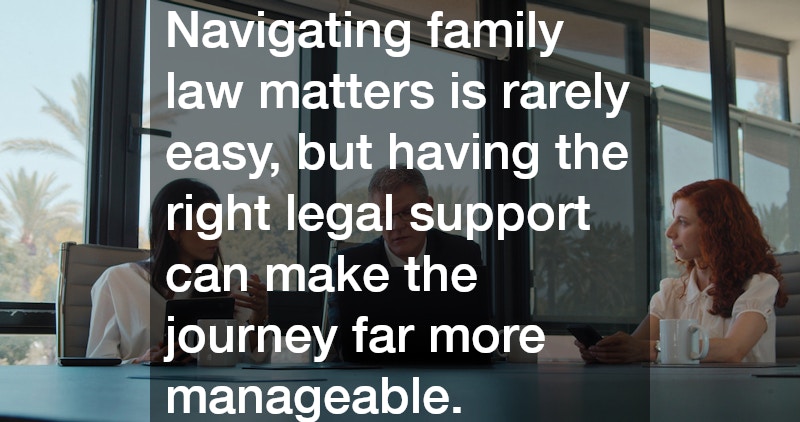How to Find a Family Law Attorney You Can Trust
When faced with sensitive issues such as divorce, child custody, or spousal support, selecting the right attorney can make all the difference. Family law matters are deeply personal and often emotionally charged, making it essential to have a legal advocate who not only understands the law but also respects your unique circumstances.
Finding a family law attorney you can trust is not just about credentials—it’s about securing someone who can guide you with professionalism, empathy, and integrity.
Understanding the Role of a Family Law Attorney
Before beginning your search, it’s important to understand what a family law attorney does. They handle a wide range of cases related to family relationships, including divorce, adoption, child custody, guardianship, property division, and domestic violence issues. Beyond providing legal representation, they often act as advisors and negotiators, helping clients navigate stressful situations while working toward solutions that prioritize both fairness and long-term well-being.
Start with Referrals and Research
The first step in finding a trustworthy attorney is to gather recommendations. Friends, family members, or colleagues who have gone through similar experiences can provide valuable insights into their own legal representation. Personal referrals often give you a clearer picture of an attorney’s approach, communication style, and effectiveness.
In addition to referrals, online research is indispensable. Legal directories, bar association websites, and client review platforms can help you create a shortlist of potential attorneys. Pay attention to reviews that emphasize qualities like responsiveness, compassion, and clarity—these are often indicators of an attorney who prioritizes client trust.
Evaluate Experience and Specialization
Family law is a complex field, and laws can vary from state to state. It’s vital to choose an attorney who has significant experience in family law and has handled cases similar to yours. For example, if your case involves high-asset property division, you’ll want an attorney familiar with complex financial matters. If custody is at stake, you’ll need someone well-versed in child welfare laws and negotiation strategies.
During your initial research, look for certifications, professional memberships, or recognition from respected legal organizations. While these credentials don’t guarantee trustworthiness, they often signal a commitment to maintaining high professional standards.
Meet for Consultations
Most family law attorneys offer an initial consultation—sometimes free, sometimes for a nominal fee. This meeting is your chance to evaluate whether the attorney is a good fit for you. Prepare a list of questions ahead of time, including:
-
How many years of experience do you have in family law?
-
Have you handled cases like mine before?
-
What is your approach to resolving disputes—litigation, mediation, or negotiation?
-
How do you communicate with clients and keep them updated?
-
What fees and costs should I expect?
The way an attorney answers these questions can reveal a lot about their competence and transparency. Trust your instincts—if you feel dismissed, rushed, or unclear after the consultation, that may be a sign to look elsewhere.
Assess Communication and Transparency
Trustworthy attorneys are clear and honest in their communication. They won’t sugarcoat the challenges of your case, nor will they make unrealistic promises. Instead, they will explain potential outcomes, timelines, and costs in a way you can understand. A good family law attorney should also be accessible—returning phone calls, responding to emails promptly, and keeping you updated on your case’s progress.
Transparency about billing is equally important. Make sure you understand whether the attorney charges a flat fee, hourly rate, or retainer. Ask for an estimate of total costs and whether additional expenses (such as filing fees or expert witness costs) may arise.
Look for Empathy and Professionalism
Family law often involves deeply emotional issues. You need an attorney who can remain professional while showing empathy for your situation. A lawyer who treats you with respect, listens carefully, and genuinely cares about your concerns will help ease the stress of the legal process. At the same time, they should remain objective and provide advice that is in your best long-term interest, even if it’s not what you want to hear in the moment.
Trust Your Instincts
Ultimately, choosing the right attorney comes down to trust. You should feel comfortable sharing sensitive information, confident in their ability to represent your interests, and reassured that they will handle your case with care and dedication. If an attorney makes you feel uneasy or pressured, it’s best to continue your search.
Conclusion
Navigating family law matters is rarely easy, but having the right legal support can make the journey far more manageable. A trusted family law attorney will not only provide legal expertise but also offer guidance and support during one of life’s most difficult periods. By researching thoroughly, asking the right questions, and paying attention to communication and empathy, you can find an attorney who aligns with both your legal needs and personal values. Trust is built on competence, transparency, and compassion—and when you find these qualities in your attorney, you’ll know you’ve made the right choice.







